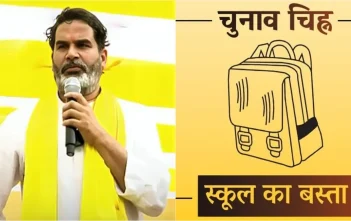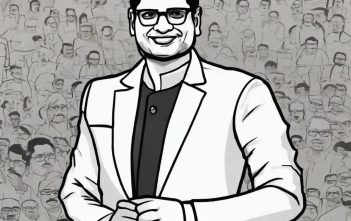Prashant Kishor: The Architect of Modern Indian Political Strategies
Early Life and Background
Born in 1977 in Rohtas district, Bihar, India, Prashant Kishor, often known simply as PK, embarked on a journey that would eventually revolutionize political campaigning in India. Kishor’s formative years were shaped by the socio-political environment of Bihar, a state known for its political volatility and challenges. His early exposure to this milieu sowed the seeds of a deep understanding of Indian politics and society. Kishor initially pursued a career in public health, graduating with a degree in public health and working with the United Nations for several years. This period was instrumental in honing his analytical and strategic thinking skills, which he would later apply to the political arena.
Political Journey
Kishor’s foray into politics was not through the conventional route of party politics but as a strategist and tactician. His entry into the political scene was marked by his role in Narendra Modi’s successful campaign for the Prime Ministership in 2014. As the chief strategist for Modi’s campaign, Kishor introduced a number of innovative techniques, including extensive use of data analytics and social media, which were instrumental in Modi’s victory.
Key Achievements and Contributions
Crafting Election Strategies
Kishor’s approach to election strategy, characterized by a focus on ground-level issues and targeted communication, has been credited with transforming how election campaigns are conducted in India. After his success with the BJP in 2014, Kishor founded the Indian Political Action Committee (I-PAC), through which he has offered his expertise to various political parties across the political spectrum.
Diverse Political Collaboration
One of Kishor’s notable strengths has been his ability to work across party lines, assisting parties like the Janata Dal (United) in Bihar, the Indian National Congress in Punjab and Uttar Pradesh, and the Trinamool Congress in West Bengal. His work has often led to significant electoral victories, demonstrating his ability to understand and connect with the Indian electorate’s diverse and complex nature.
Major Policies and Initiatives
While Kishor is primarily known as a strategist rather than a policy-maker, his influence on policy directions through his campaigns cannot be understated. His campaigns have often emphasized development, youth, and inclusivity, pushing parties to adopt policies that resonate with these themes.
Challenges and Controversies
Kishor’s career has not been without its challenges. His strategies, while often successful, have sometimes drawn criticism for their focus on personality over policy. Moreover, his willingness to work with a wide array of parties has led to accusations of opportunism. Despite these controversies, Kishor’s impact on the political landscape is undeniable.
Legacy and Current Influence
Today, Prashant Kishor remains a formidable figure in Indian politics, known for his strategic acumen and innovative campaigning techniques. His legacy includes not only the electoral victories he has helped secure but also the broader shift towards more professional and data-driven campaign strategies in Indian politics.
Vision for the Future
Kishor’s vision for India’s political future is one of inclusivity, development, and democratic engagement. He advocates for a politics that is responsive to the needs and aspirations of the Indian people, especially the youth. His continued work in the political arena, whether directly with parties or through initiatives aimed at fostering political engagement, suggests a commitment to shaping a more participative and responsive democratic process.
Conclusion
Prashant Kishor’s journey from a public health professional to a political strategist extraordinaire encapsulates the evolving nature of Indian politics. His innovative approaches and strategic insights have left an indelible mark on the way political campaigns are conducted in India. Despite the challenges and controversies, his legacy as a catalyst for change in Indian politics is secure, with his vision for the future continuing to influence the political discourse in the country.



